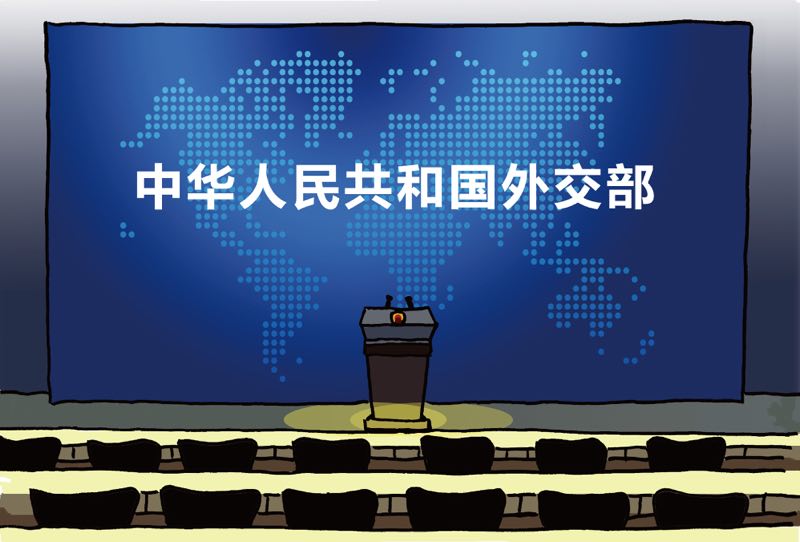 Front gate of the Ministry of Foreign Affairs of China in Beijing, March 13, 2018. (Xinhua/Jin Liangkuai)
Front gate of the Ministry of Foreign Affairs of China in Beijing, March 13, 2018. (Xinhua/Jin Liangkuai)
BEIJING, Jan. 4 (Xinhua) -- Recently a Reuters report cited a speech by Chinese President Xi Jinping as saying that China is reviving "wolf warrior diplomacy," but upon examination, Xinhua discovered the report was the result of a misreading of official Chinese literature.
The Reuters report quoted a speech Xi made before Chinese diplomatic envoys in late December as saying that the Chinese ambassadors were urged to "forge a diplomatic iron army." The report went on to say the phrase "iron army" revived "the abrasive Wolf Warrior rhetoric propagated by some diplomats as a sign of China's increasingly assertive foreign policy."
By making the association, the Reuters report implies that the call for forging an "iron army" is an order to carry out "wolf warrior diplomacy" in disguise. In reality, this association is misleading.

"Iron Army" is a frequently appearing phrase in official Chinese literature and carries a specific meaning. It emphasizes the discipline of government officials and has nothing to do with the armed forces. That's why the phrase has been around for ages and can be found in official speeches across government agencies, ranging from law enforcement to environmental protection.
For example, in an interview in 2021, Minister of Ecology and Environment Huang Runqiu called for forging "an environmental protection iron army", using the phrase in the sense of strengthening discipline.
If the Reuters report provided a more complete context for the phrase iron army, readers would realize that the envoys were not being urged to put on a menacing face before the world. Instead, they were being encouraged to act on their best behavior and not bend the rules.
Admittedly, for Western readers, the phrase iron army conjures up an intimidating image that can easily be interpreted as a synonym for wolf warrior, but it doesn't really mean that. Wrongly associating phrases and basing entire news stories on them does no good in offering readers an accurate understanding of what China is saying. ■



